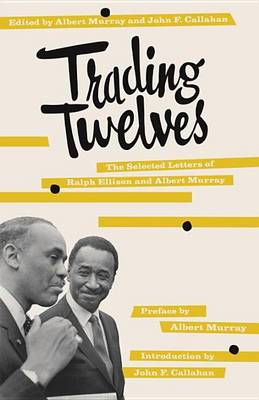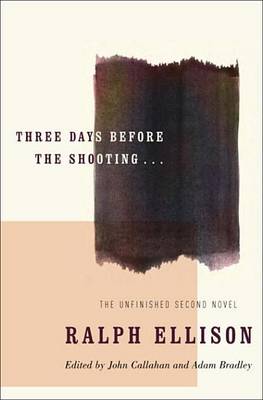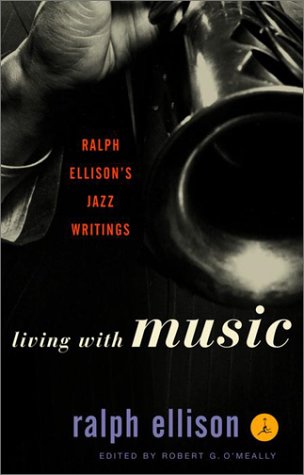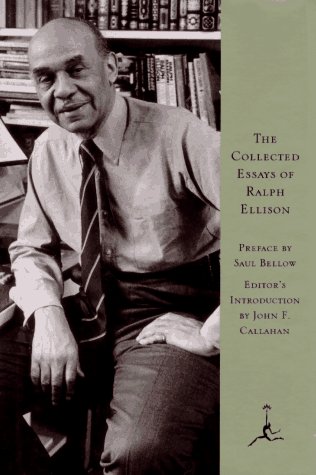Modern Library
5 total works
Selected by the Modern Library as one of the 100 best novels of all time • Nominated as one of America’s best-loved novels by PBS’s The Great American Read
Invisible Man is a milestone in American literature, a book that has continued to engage readers since its appearance in 1952. A first novel by an unknown writer, it remained on the bestseller list for sixteen weeks, won the National Book Award for fiction, and established Ralph Ellison as one of the key writers of the century. The nameless narrator of the novel describes growing up in a black community in the South, attending a Negro college from which he is expelled, moving to New York and becoming the chief spokesman of the Harlem branch of "the Brotherhood," and retreating amid violence and confusion to the basement lair of the Invisible Man he imagines himself to be. The book is a passionate and witty tour de force of style, strongly influenced by T.S. Eliot's The Waste Land, Joyce, and Dostoevsky.
Invisible Man is a milestone in American literature, a book that has continued to engage readers since its appearance in 1952. A first novel by an unknown writer, it remained on the bestseller list for sixteen weeks, won the National Book Award for fiction, and established Ralph Ellison as one of the key writers of the century. The nameless narrator of the novel describes growing up in a black community in the South, attending a Negro college from which he is expelled, moving to New York and becoming the chief spokesman of the Harlem branch of "the Brotherhood," and retreating amid violence and confusion to the basement lair of the Invisible Man he imagines himself to be. The book is a passionate and witty tour de force of style, strongly influenced by T.S. Eliot's The Waste Land, Joyce, and Dostoevsky.
This absorbing collection of letters spans a decade in the lifelong friendship of two remarkable writers who engaged the subjects of literature, race, and identity with deep clarity and passion.
The correspondence begins in 1950 when Ellison is living in New York City, hard at work on his enduring masterpiece, Invisible Man, and Murray is a professor at Tuskegee Institute in Alabama. Mirroring a jam session in which two jazz musicians "trade twelves"—each improvising twelve bars of music around the same musical idea-their lively dialog centers upon their respective writing, the jazz they both love so well, on travel, family, the work literary contemporaries (including Richard Wright, James Baldwin, William Faulkner and Ernest Hemingway) and the challenge of racial inclusiveness that they wish to pose to America through their craft. Infused with warmth, humor, and great erudition, Trading Twelves offers a glimpse into literary history in the making—and into a powerful and enduring friendship.
The correspondence begins in 1950 when Ellison is living in New York City, hard at work on his enduring masterpiece, Invisible Man, and Murray is a professor at Tuskegee Institute in Alabama. Mirroring a jam session in which two jazz musicians "trade twelves"—each improvising twelve bars of music around the same musical idea-their lively dialog centers upon their respective writing, the jazz they both love so well, on travel, family, the work literary contemporaries (including Richard Wright, James Baldwin, William Faulkner and Ernest Hemingway) and the challenge of racial inclusiveness that they wish to pose to America through their craft. Infused with warmth, humor, and great erudition, Trading Twelves offers a glimpse into literary history in the making—and into a powerful and enduring friendship.
Set in the frame of a deathbed vigil, this story is a multi generational saga centered on the assassination of the controversial, race-baiting U.S. senator Adam Sunraider, who's being tended to by "Daddy" Hickman, the elderly black jazz musician turned preacher who raised the orphan Sunraider as a light-skinned black in rural Georgia.
Before Ralph Ellison became one of America’s greatest writers, he was a musician and a student of jazz, writing widely on his favorite music for more than fifty years. Now, jazz authority Robert O’Meally has collected the very best of Ellison’s inspired, exuberant jazz writings in this unique anthology.




